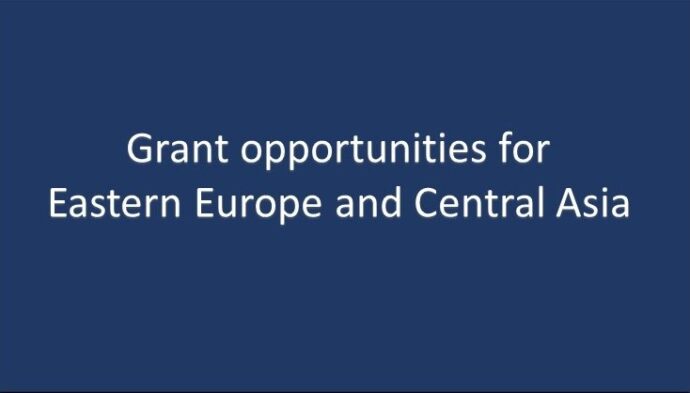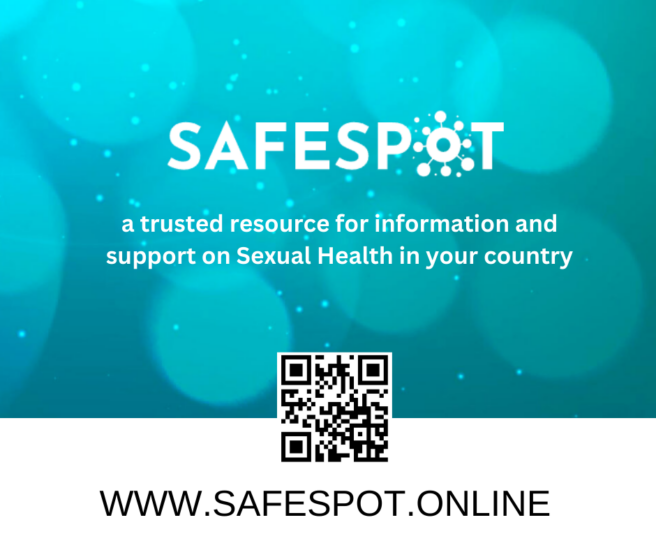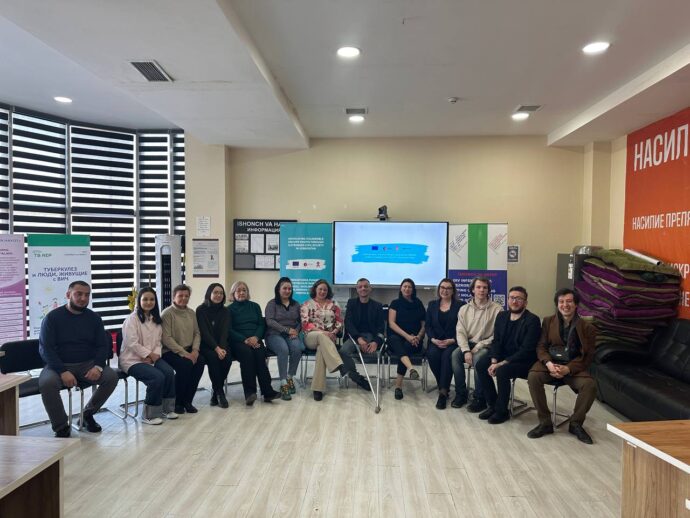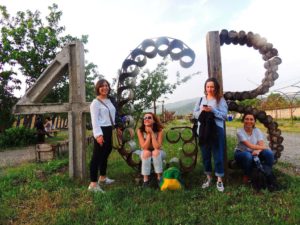
Author: Irma Kakhurashvili, Georgia
4GB is an annual electronic music festival which has been held in Georgia since 2011. The festival is dedicated to the memory of DJ Giorgi Bakanidze – one of the Georgian club music pioneers. This year, 4GB was held in an abandoned Cosmic Constructions Centre near the Saguramo village. Apart from the high-quality lineup, sound systems and headliners performing on stage, 4GB festival had another prominent feature – for the first time in the history of Georgian music festivals, a team of volunteers delivered harm reduction services 24 hours a day. Mandala – Harm Reduction youth project team members did their best to make sure that more than one hundred participants of the festival stay healthy. Thanks to this project, drug and alcohol intoxication, overdoses and other risky situations were brought to naught.
Information as weapons
Information about the new project first appeared in social networks. Several days before opening of the festival, organizers announced that due to the growing number of drug-related deaths (last month, seven young people died in Georgia – author’s note) they decided to protect their guests and music lovers with the help of Mandala – Harm Reduction.
With the financial support of Doctors of the World (France), 20 young volunteers, who received harm reduction training, were engaged in the project.
“Last month, several young people died of drugs, and we thought that in such circumstances our initiative will be very timely. We still remember the last-year GEM FEST, where 22-year-old Natia Tavartkiladze died of drug intoxication in Anaklia. Therefore, our goal was to give all people, especially young ones, objective information about health, drug use and personal safety,” says Temur Khatiashvili, Project Coordinator.
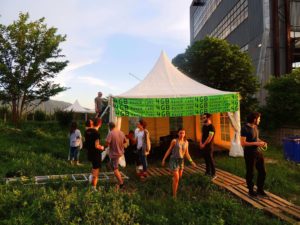
According to Temur, the awareness-raising materials distributed at the festival were specially developed for young people – pocket-size brochures with the original design, which used simple language to describe a number of popular club drugs, their potential harms, and universal overdose prevention and safety rules. The brochure included a matrix showing the compatibility of different low- and high-risk drugs and a map of the festival territory marking the tent offering harm reduction services. In the friendly atmosphere of the tent, all interested people could receive consultations, get free condoms, drinking water and hematogen (nutrition bar that is often considered to be a medicinal product and is used to treat or prevent low blood levels of iron and vitamin B12 – editor’s note).
Project to be continued
The 4GB festival had a happy end. Participants of the Mandala – Harm Reduction project coordinated their efforts with the ambulance team, which they contacted over the radio in case of need.
The 4GB organizers welcomed Mandala – Harm Reduction as it clearly demonstrated that such project is important for thousands of people who are brought together by such large-scale music event. Participants of the festival were also positive about the project.
21-year-old Tamar Ninua thinks that today electronic music is the fastest growing youth culture in the world, and such projects are especially important for people who may use drugs, not being fully conscious of the consequences of their unsafe behaviours. In such cases, access to timely assistance is very important.
“Despite of the high health risk, people still use various substances. The festival is not an exception. The efforts of Mandala volunteers helped to mitigate the risks. Many young people lose self-control in the euphoria of the festival. The Mandala volunteers, who were easy to recognize as they were wearing kind of a uniform, were moving around in an organized way and were promptly responding to any cases who might need help,” says Tamar.
The project initiators are optimistic and say that in the nearest future the idea of festival-based harm reduction will be extended to cover all the music events in Georgia. They hope that they will receive support not only from different harm reduction charities but also from the mayors’ offices.
It is not that easy
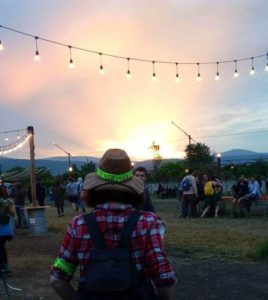
“We will try to improve this project and will learn to overcome the barriers that we face. E.g., festival organizers said that we could by no means hand out syringes. They said that young people might see it as an incentive for using drugs. However, we insisted until the end that this service is necessary. Besides, they were against the distribution of naloxone but we were able to prove that having a highly effective medication to deal with overdoses is vital,” told Mariam Ubilava, project volunteer and coordinator.
According to Mariam, the project is aimed at preserving the health of each festival participant, at mitigating the negative consequences of substance use and achieving behaviour changes.
“We noticed one more problem. When some young people saw us, they were more eager to practice risky behaviours, hoping for our help. Thus, they reduced their own responsibility, shifting it on us. That is why we will have to think how to prevent it from happening in future and find a balance,” says Mariam.
Such projects as Mandala – Harm Reduction are widely implemented at various music events all over the world, such as Amsterdam Open Air, Lollapalooza Paris, Tomorrowland, etc.


